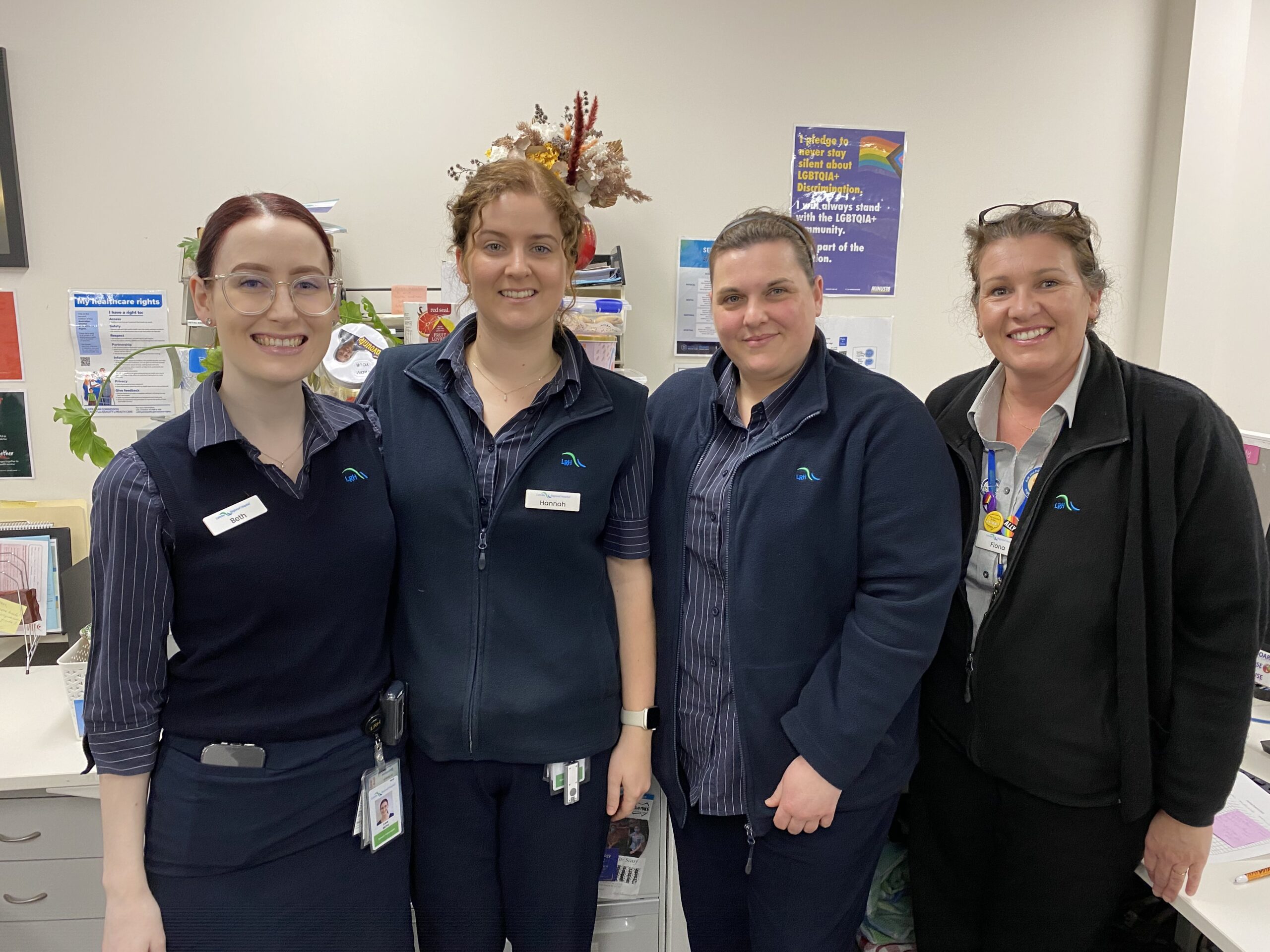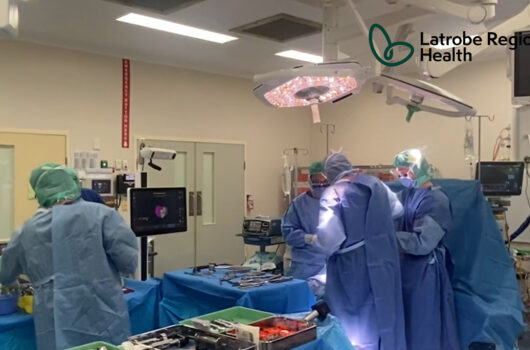‘Speechies’ – communicating with confidence

The world of a speech pathologist is varied and challenging but also holds multiple rewards as their work helps make a substantive change to an individual’s life.
“We work with people at any age or stage of life, from babies and children through to adults and even those at the end of life,” LRH Speech Pathology Manager, Fiona Derham said.
Fiona manages a team of eight speech pathologists and allied health assistants working with patients of all ages throughout LRH.
“The work takes us into every department of the hospital, from the Special Care Nursery, to acute wards, radiotherapy, rehabilitation and geriatric wards as well as mental health inpatient units.”
A typical day for a speech pathologist at LRH often starts with assessing referrals received overnight, and prioritising those who are presumed to have significant swallowing difficulties.
This includes triaging high-risk referrals, conducting swallowing assessments, arranging ‘swallow X-rays’, working with mothers and babies in the Special Care Nursery, communication therapy and working with tracheostomy patients. They also work in outpatient therapy and manage feeding clinics for paediatrics.
Some patients need to work with a speech pathologist following an acute incident or procedure or as a result of progressive conditions such as Parkinson’s Disease or Motor Neuron Disease.
Not surprisingly, technology has altered the way in which speech pathology is delivered and the results it can achieve.
“In recent years we’ve seen some exciting tools become available that can make significant differences to a patient’s quality of life,” Fiona said.
This may involve recording the voice of a patient who is likely to lose their ability to communicate verbally. These recordings can then be stored and created into their own unique voice to use on a speech generating device.
For patients who are unable to verbally communicate and use their upper limbs, the speech pathologist may help them with using an eye-gaze device, that can be navigated with the patient’s eye-movement.
Relearning how to perform a task previously done without thinking is what the friends and family of a patient might see. In some ways it is the ‘internal recovery’ of confidence and belief that is one of the most important parts of a speech pathologist’s work.
“Following my laryngectomy, I awoke with a feeling of despondency and hopelessness even though I received wonderful attention from all the doctors and nurses, but since my recovery period it’s been the work put in by the speech pathologists that has given me hope and a sense of direction. I still have a long way to go but I’m feeling more confident,” Joe, a recent patient of the team at LRH said.
Speech pathologists may also assist with one of the most natural movements a human can do: to swallow.
“There are numerous reasons why someone may have swallowing difficulties such as stroke, head and neck cancers, dementia, acquired brain injury, degenerative neurological conditions, cleft palate and mental health conditions to name a few,” Fiona said.
Speech pathologists are able to assess, diagnose, manage and treat swallowing difficulties through a range of approaches.
“If a patient was to present with a stroke in the Emergency Department, the nursing staff would refer to speech pathology for a swallowing assessment to ensure patients are not at risk of aspiration (food/drink going the wrong way) or choking.
One of the first steps we do is to complete an assessment at the patient’s bedside. If further investigation is required then we’ll conduct a swallow x-ray to determine if the patient is safe to eat and drink, and whether they may need swallowing rehabilitation,” Fiona said.
Some patients may require modified food and drink e.g., pureed foods and thickened drinks. After a period of rehabilitation, a secondary swallow x-ray may be completed to review whether the patient’s swallowing function has improved.
George, who presented with a stroke aged in his 60s says the assistance of the Speech Pathology team has been a major factor in his rehabilitation.
“I have come along leaps and bounds. Once I was very challenged. I still have challenges, but I am progressing. If I hadn’t had speech therapy I wouldn’t be where I am today.”
Pictured: (L-R) Speech Pathologists Beth Lane, Hanna Robbins, Allied Health Assistant Tara King and Team Leader Fiona Derham.






